Monitor "promises" and commitments
Speaking at the question-and-answer session, National Assembly Chairman Vuong Dinh Hue emphasized: This is the first time in the 15th tenure and the fourth time since the Law on Supervisory Activities of the National Assembly and People's Councils 2015 took effect that the National Assembly has questioned Government members and heads of sectors on the implementation of resolutions of the 14th National Assembly and from the beginning of the 15th National Assembly's tenure to the end of the 4th Session on thematic supervision and questioning in various fields.
“Through this supervision activity, the National Assembly will grasp the situation, progress and results of the implementation of the National Assembly's resolutions, the implementation of the "promises" and commitments of the Government, ministers and heads of sectors. The re-supervision, focusing on supervising post-supervision issues, following up on the supervised and questioned issues to help the Government, ministers and heads of sectors have the opportunity to report to the National Assembly, voters and people on what they have done, upholding the spirit of responsibility, thoroughly and fundamentally resolving the issues raised by the National Assembly" - the National Assembly Chairman emphasized.
National Assembly Chairman Vuong Dinh Hue delivers the opening speech at the question and answer session. Photo: Doan Tan/VNA
Next, Deputy Prime Minister Tran Luu Quang, authorized by the Prime Minister, presented a Report on the implementation of a number of resolutions of the 14th National Assembly on thematic supervision and questioning and the National Assembly's resolutions on thematic supervision and questioning from the beginning of the 15th term to the end of the 4th Session.
Deputy Prime Minister Tran Luu Quang said that in recent times, the Government and the Prime Minister have focused on directing ministries, branches and localities to seriously implement the National Assembly's resolutions on thematic supervision and questioning, achieving many positive results, contributing to the effective implementation of the socio-economic development goals and tasks set out. In particular, many tasks have been completed, creating positive changes in various fields and a number of regular, long-term tasks are being vigorously implemented. However, some tasks are still slow to be implemented and have not met the requirements due to many objective and subjective reasons and continue to need time to complete.
In the coming time, the Government and the Prime Minister will focus on directing ministries, branches and localities to make greater efforts in implementing the National Assembly's resolutions on thematic supervision and questioning.
Also at the hall, the Chief Justice of the Supreme People's Court and the Chief Prosecutor of the Supreme People's Procuracy presented a Report on the implementation of a number of resolutions of the 14th National Assembly on thematic supervision and questioning and the National Assembly's resolutions on thematic supervision and questioning from the beginning of the 15th term to the end of the 4th Session.
Presenting a report at the questioning session, Chief Justice of the Supreme People's Court Nguyen Hoa Binh said that the Supreme People's Court has directed the Courts to innovate trials in the spirit of judicial reform, promote and strengthen litigation, strictly implement the principle of independent judges and juries and only obey the law; coordinate well with prosecution agencies and relevant agencies to ensure unity in the perception of law enforcement; promptly bring to trial in a timely and strict manner, and apply severe penalties to masterminds, ringleaders, and those who abuse their positions and powers to appropriate State assets.
Regarding the field of prosecution, Chief Justice of the Supreme People's Procuracy Le Minh Tri said that the practice of the right to prosecute judicial activities has had many positive results, with basic indicators exceeding the requirements in Resolution No. 96 of the National Assembly.
Traffic and public asset management "hot" in parliament
Minister of Finance Ho Duc Phoc answers questions. Photo: An Dang/VNA
Accordingly, the content of the questioning covered all fields and was divided into 4 main groups of issues: General economy; sectoral economy; socio-culture and internal affairs, and justice. The form of questioning was in the spirit of quick questions and concise answers. Government members clarified the questions of the delegates right at the questioning session, clearly demonstrating the role of commanding the sector and management field. National Assembly delegates also followed, supervised and actively debated the opinions of Government members to clarify the issues, which demonstrated the close attention of delegates related to each field; at the same time, proposed specific solutions to remove obstacles to the issue of supporting businesses, ensuring major balances of the economy.
Many delegates questioned the Minister of Finance about practicing thrift in regular spending, managing public assets and improving Vietnam's credit rating. Responding to questions from delegates, Minister of Finance Ho Duc Phoc said that after the National Assembly's Resolution 74, the Ministry of Finance had consulted with ministries and branches. In March 2023, the Prime Minister issued a decision on the program of practicing thrift and fighting waste to be implemented in the following years. As the agency that collects and manages state assets, the Ministry of Finance will strengthen inspection and examination work; at the same time, build a database on public assets to monitor fluctuations in public assets, thereby tightening management for more effective results.
Regarding national credit, the Minister of Finance said that recently, Vietnam's national credit has been highly appreciated by the world. While some countries have been downgraded, Vietnam has been upgraded to the level of "prospect and stability". This creates confidence for financial funds and investment funds to pour money into the economy and promote development.
Issues related to increasing the total investment of the project; procedures for connecting traffic routes of districts, provinces and national highways; investment phases for 2-lane and 4-lane expressway projects without continuous emergency lanes; socialization of airport infrastructure... are "hot" issues that National Assembly deputies are concerned about; requesting the Minister of Transport to clarify responsibilities as well as propose solutions to overcome them in the coming time.
Responding to questions about the Ministry's viewpoint on investment phases for 2-lane and 4-lane highway projects without continuous emergency lanes, Minister of Transport Nguyen Van Thang said that in recent times, especially in the 2021-2026 period, the Party and State have paid great attention to investing in infrastructure development, especially transport infrastructure. This term has spent over 375 trillion VND to deploy infrastructure development, mainly highway construction.
"However, construction is currently only reaching more than 70% of demand. Investing in completing the expressway in the context of limited resources is very difficult to do," said Minister Nguyen Van Thang.
Currently, many developed countries in the world are implementing investment phases for expressways. Based on experience, the Ministry of Transport has researched and reported to competent authorities to implement investment phases according to the principle of ensuring to meet requirements in the context of limited resources, but also creating premises and convenience in the later stage when there are resources for upgrading.
In the coming time, the Ministry will coordinate with local ministries and branches to propose completing the remaining expressway sections according to the plan, prioritizing new routes with 2 lanes and high traffic volume to ensure the whole country has a synchronous and modern expressway system.
In addition, the Ministers of the Ministries of Planning and Investment, Agriculture and Rural Development, Natural Resources and Environment, and the State Bank answered questions from delegates about the fields of general economics and sectoral economics.
Promoting economic restructuring
On the afternoon of November 6, Deputy Prime Minister Le Minh Khai answered questions before the National Assembly on a number of issues related to the general economic sector.
Responding to questions from delegates about economic restructuring, Deputy Prime Minister Le Minh Khai stated: After 2 years of implementation, many goals and policies have been effective, such as creating room for flexible use of fiscal and monetary policies, contributing to maintaining macroeconomic stability, controlling inflation, supporting growth...
Market types (stocks, corporate bonds) continue to develop. Recently, the individual corporate bond market was launched. Regarding the stock market, we are currently striving to upgrade it from a frontier market to an emerging market. At the same time, we also continue to develop the business force according to the set goals; the transport infrastructure also has strong development...
Regarding investment in culture, education and training, the Deputy Prime Minister also emphasized the urgent solution of building and completing the National Target Program on Cultural Revival. In this Program, resources will be prioritized for key targets.
Regarding the issue of equitization and divestment of state-owned enterprises, Deputy Prime Minister Le Minh Khai said that the Government and the Prime Minister have focused on directing and will continue to direct sectors and levels to implement solutions to accelerate the progress of equitization and divestment in the coming time. Continue to review and strengthen the responsibility of leaders related to equitization, especially representatives of owners and agencies representing state capital owners.
According to VNA/Tin Tuc Newspaper
Source


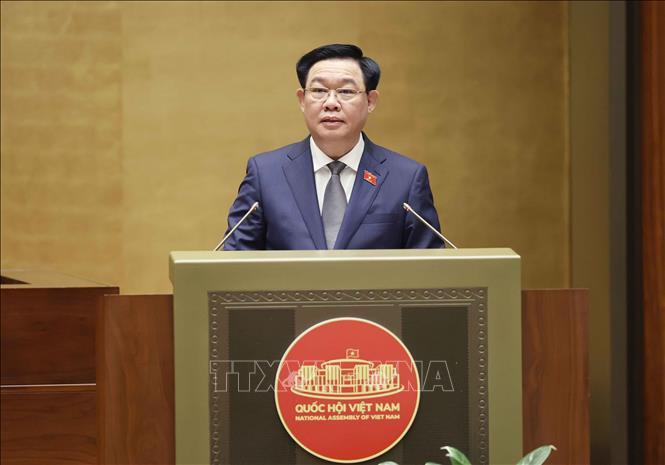
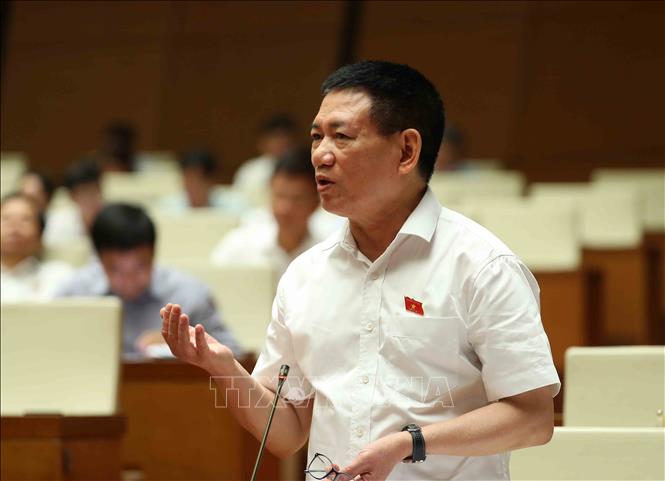
![[Photo] Cutting hills to make way for people to travel on route 14E that suffered landslides](https://vphoto.vietnam.vn/thumb/1200x675/vietnam/resource/IMAGE/2025/11/08/1762599969318_ndo_br_thiet-ke-chua-co-ten-2025-11-08t154639923-png.webp)









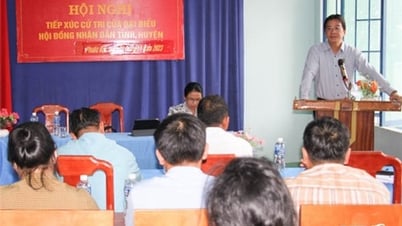
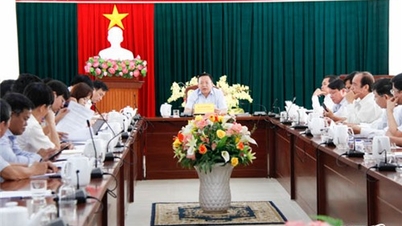


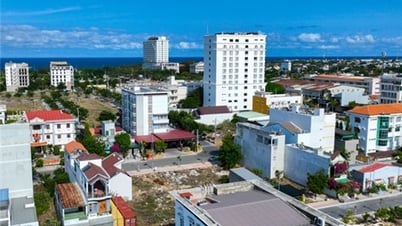





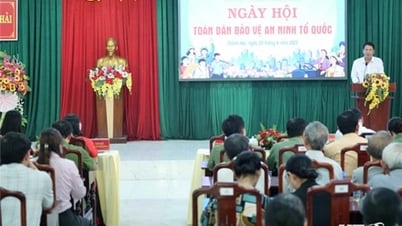







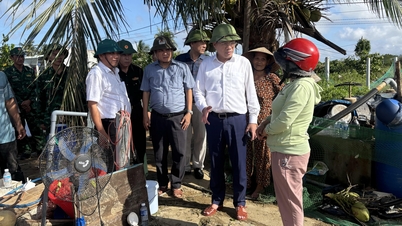
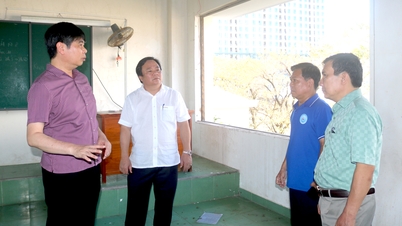

![[Photo] "Ship graveyard" on Xuan Dai Bay](https://vphoto.vietnam.vn/thumb/1200x675/vietnam/resource/IMAGE/2025/11/08/1762577162805_ndo_br_tb5-jpg.webp)






![[Video] Hue Monuments reopen to welcome visitors](https://vphoto.vietnam.vn/thumb/402x226/vietnam/resource/IMAGE/2025/11/05/1762301089171_dung01-05-43-09still013-jpg.webp)































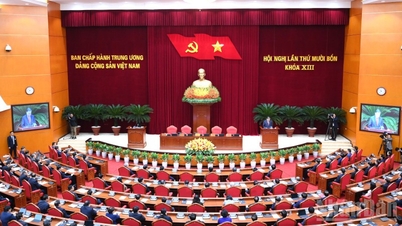



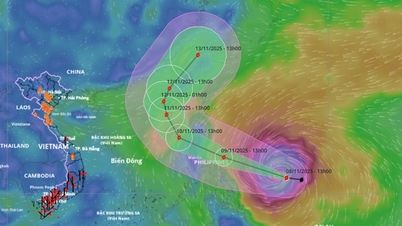














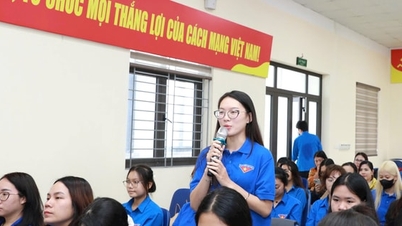

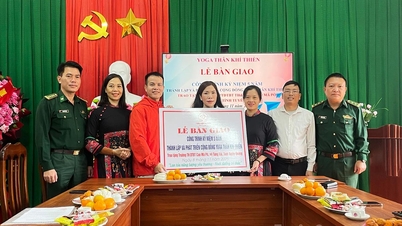


















Comment (0)